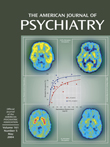The author Molly Haskell once called Ethel Person a Cousteau of the psychological deep, and, indeed, Person continues to chart the subterranean depths of the psyche in this latest contribution, this time taking on the topic of power the way she has explored love and fantasy in the past. As she did in
Dreams of Love and Fateful Encounters (1) and
By Force of Fantasy (2), Person blends psychoanalytic thinking, literary and popular examples, and clinical vignettes to create a richly interwoven exploration of what constitutes authentic power, what makes us feel genuinely strong. Using examples as far-reaching as Harry Potter, the Godfather, the life of Katherine Graham, and Ezra Pound’s editing of T.S. Eliot’s
Wasteland, Person rejects the narrow view of power commonly addressed in best-selling business and self-help books that focus on how to attain and wield power, how to “dream and scheme” our way to the top. Instead, she redefines power as “our ability to produce an effect, to make something that we want to happen actually take place.”
Reframing power in this way means that power issues are not the tainted, evil province of politicians and business leaders who lust for control over others but, rather, a force that plays a central role in all our lives. Person argues that power is a part of all of our life’s activities as we manage and mediate our sex and love lives, our family lives and friendships, and our work relationships. Power is also a key component of our inner worlds as we seek to realize our dreams, pursue our ambitions, and express our creative impulses. “The true heart of power is two-chambered,” she writes. “It comprises both our ability to negotiate relationships and our ability to initiate independent goal-oriented activities.” She calls these two different complementary capacities interpersonal power and personal power, respectively. According to Person, the first of these is easier to conceptualize because we are all born into “a power grid called a family” where we first learn about power differentials between people.
All power relationships, all desires either to dominate or submit, have their psychological roots in the fact that we were once little children with big parents, and their existential roots in our feeling of being small people in an out-of-control big world that we need to be able to tame.
Person’s explorations of powerlessness, power in intimate relationships, and power as it relates to sex, gender, hierarchy, and sadomasochism (which she defines as power corrupted by aggression) in the first two parts of the book are fascinating. However, Person is at her best in part 3, which focuses on personal power. This portion of the book contains her novel conceptualization of power as the force behind the sense of agency that allows us to author our own life stories, her examination of the power of creativity, and her study of the recognition of power in the form of fame, celebrity, money, and social status. Finally, Person explores the intriguing notion of the power to transcend through an analysis of what she calls the Godfather fantasy. As Godfather, Mario Puzo’s Don Corleone is a miraculous, mysterious authority figure whose power, Person asserts, lies chiefly in our need for him to be powerful in a transcendent way, commanding life and death if he wishes and allowing others to transcend the ordinary rules of right and wrong. Person believes that the wish for such a figure and our willingness to cede personal authority to him in order to be connected to him derives from our sense of powerlessness and dependence in early life as well as our sense of powerlessness in the face of the certainty of death, for which transcendence might serve as an antidote. It is this second source of feeling powerless in the face of death and oblivion that arises as a new anxiety later in life and causes us either to strive for immortality through our achievements or to search for transcendent meaning.
Ultimately, Person defines genuine power as the capacity to stand on our own two feet and “taking a walk around life… facing what needs to be faced and doing so in the context of an interdependent world.” Person’s epilogue, in which she addresses the psychoanalytic failure to theorize power, will be of special interest to psychoanalysts and those who follow new developments in psychodynamic thought. Overall, however, Feeling Strong is a must-read—and a delightful one at that—for anyone interested in the subject of power. And that, as Person successfully argues, means all of us.

